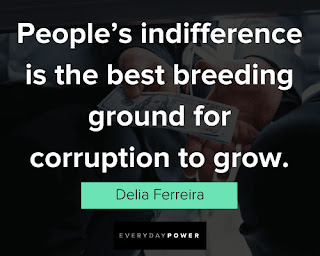Are voters taking a softer stance against instances of corruption in politics?
A. Kathirasen - 17 Aug 2023, 7:00am
Perikatan Nasional (PN) performed very well in the Aug 12 state elections in Penang, Kedah, Selangor, Negeri Sembilan, Terengganu and Kelantan, winning 146 of the 245 seats contested.
It proved stronger than the Pakatan Harapan-Barisan Nasional combination despite a concerted attack by PH-BN against its leaders over corruption allegations.
PAS’ Sanusi Nor, who is facing two charges of sedition against Selangor ruler Sultan Sharafuddin Idris Shah, easily retained the Jeneri state seat.
In fact, Sanusi, whom the Malaysian Anti-Corruption Commission wants to question in connection with alleged corruption over the theft of rare earth elements in Sik, Kedah, won with an impressive majority of 16,050 votes.
The PN election director secured 21,823 votes while his BN opponent Muhamad Khizri Abu Kassim managed to get only 5,773 votes in a straight fight.
PN chairman Muhyiddin Yassin was charged in March with four power abuse and three money laundering charges and at the time of the polls, these charges remained. However, on Aug 15, the High Court acquitted the former prime minister of the four charges of abuse of power.
The MACC also wants to question his son-in-law over corruption and irregularities regarding certain projects related to the recruitment and biometric storage system of foreign workers.
Muhyiddin’s party Bersatu was investigated under the Money Laundering Act and the Malaysian Anti-Corruption Commission (MACC) Act 2009 in February and some of its leaders have been charged with corruption.
So, why did voters disregard the allegations and charges against some the of PN leaders and give the coalition a great victory?
One answer is that all those who voted for politicians facing charges, or who are being investigated, belief in the dictum “innocent until proven guilty in court”.
Another answer is that Anwar, who has been championing a corruption-free nation has as his deputy prime minister Ahmad Zahid Hamidi who faces 47 charges of criminal breach of trust, corruption and money laundering involving Yayasan Akalbudi.
Those who voted against PH-BN would probably have felt Anwar was insincere because two heads of parties within his unity government – Zahid of Umno and Lim Guan Eng of DAP – are facing charges of corruption.
In fact, Lim, who is facing four charges of using his position as the then chief minister to solicit gratification from a firm over the proposed Penang undersea tunnel project, won re-election to the Air Putih constituency for a fourth term.
Another possible reason is that these voters do not trust the professionalism of the MACC. They probably believe the claim by PN politicians who have been charged or investigated that they are victims of political persecution.
Several questions arise regarding the issue of corruption and voters’ attitudes.
If PN improved on its previous performance despite the allegations clouding a few of its key leaders, how is it that Umno, whose president Zahid faces corruption charges, got clobbered in the last general election and again in the Aug 12 state elections?
If we assume that Umno and BN fared badly in the 15th general election because of the guilty verdict for graft-related charges against its former president Najib Razak and the corruption charges hanging around the necks of Zahid and a few other Umno leaders, PN too should have fared badly in the Aug 12 state elections.
If it was “overkill” – as Sanusi claimed – that caused his and PN’s victory, why was it not overkill in 2022 when Umno was the target?
If we assume that voters believed the claim by PN politicians who were charged or investigated that they were victims of political persecution, why did it not apply in the case of Umno in 2022?
If voters punished Umno over allegations of corruption in November 2022, and again this Aug 12, why did they support PN, some of whose leaders face investigations and charges?
Is there something about PN, and the DAP, that makes voters take a softer or forgiving stance?
Will politicians on all sides see this as the public’s willingness to vote for them despite any hint of corruption? Worse, will they see this as public willingness to forgive some transgressions, including graft, if they can connect effectively with their voter base?
We then come to the crucial question of whether some voters are indeed taking a softer stance against corruption in politics.
Do more voters agree with the views of the leader of a Muslim party that distributing cash to voters is not an electoral offence if it is distributed for “charity” by non-candidates or their agents.
Could it be that some voters do not see it as wrong because some of the money is shared with party members and others in their community? Could it be that some are willing to close an eye so long as the leader they support speaks with courage or helps his people?
Having grown used to receiving “gifts” in the form of increased allowances, special salary hikes, one-off payments, fresh development funds and relaxation of certain rules during elections, could we voters have become somewhat willing to forgive and forget the “give-and-take” that some politicians engage in?
-----------------
The writer can be contacted at kathirasen@yahoo.com. The views expressed are those of the writer and do not necessarily reflect those of FMT.



No comments:
Post a Comment